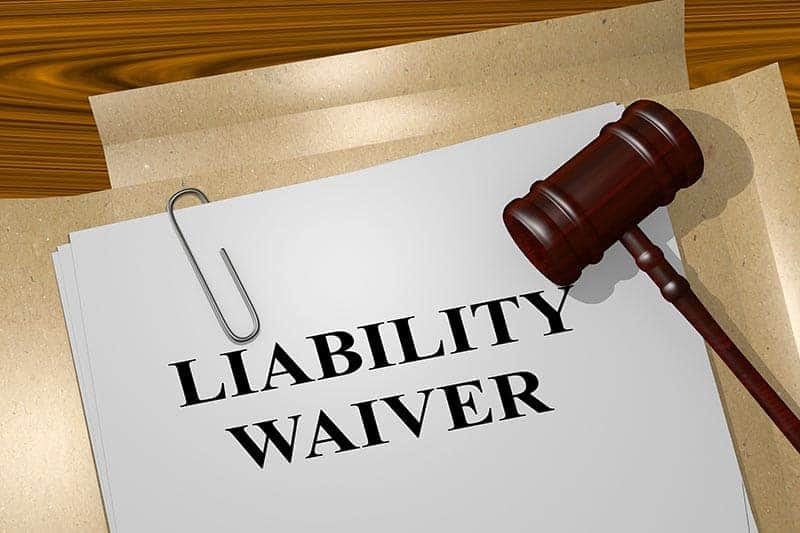Liability waivers are everywhere these days. From amusement parks to sports rentals, from guided tours to spa services, many businesses and organizations have their customers sign a form to avoid legal action in the event of an injury. You’ve probably signed one of these documents recently, stating something like: “I assume the risks involved in this activity and hold the business free from liability for injuries.”
But what happens if you do get injured in Illinois after signing a waiver? Can you still sue for compensation?
The short answer is yes. In Illinois, even though liability agreements are considered legal contracts, they are not automatically enforceable. Courts can junk them. There are several legal concepts allowing an injured claimant to pursue a lawsuit despite a signed liability waiver:
Negligence, Public Policy, And Inherent Risk
Even though signed contracts or waivers are intended to limit a company’s negligence liability, courts are likely to say that this is against public policy. That is, businesses and organizations must be accountable to the people to whom they offer their services. They should bear the responsibility for their actions.
It is important to note, however, that there is a difference between ordinary risk and negligence. For example, if you go to a gym, sign their waiver, and start lifting weights, you assume the inherent risk of injuring yourself with improper lifting techniques. This is a universal, foreseeable risk: if you don’t lift the right way, you could injure yourself. Thus, it is your responsibility to avoid this situation. It is not the gym’s duty.
However, if you got injured because the chest press machine was poorly maintained and malfunctioned during your workout, it may be considered negligence on the part of the gym. You could claim compensation for this.
In other words, if your injury occurred because the company was careless in their obligations or fell short of their professional standards, it may not matter at all that you signed a waiver. You are likely still entitled to compensation.
Unclear Language & Hidden Clauses
One of Illinois’s key requirements for an enforceable liability waiver is that it should have “clear, explicit, and concise” language. Many liability releases fail this criteria. If the waiver is short, it may not be specific or detailed enough in outlining potential risks. On the other hand, if the document is long and full of jargon, the court may say that it is not comprehensible to an ordinary customer. In both cases, the waiver is likely unenforceable.
A common example is the hidden arbitration clause. A hypothetical ski resort, for instance, hands out a lengthy waiver to its visitors. In it is a clause saying that customers forego their right to a trial, agreeing instead that any customer claim would be decided via arbitration. If this clause was tucked among big blocks of text and obscured by technical language, the court may find it invalid. An injured customer who wishes to pursue a court case may still be able to do so.
Disparity In Bargaining Power
When looking at the validity of a waiver, courts also consider whether there was a “disparity in bargaining power” when the document was signed. This refers to the inequality or unevenness between the parties in terms of their ability to negotiate. Did the customer have a meaningful choice as to whether or not to sign the waiver? Or did they simply accept the agreement because they had no other sound option?
There are recognized signs of an uneven bargaining position. One is if one party was “under economic or other compulsion” to sign the waiver. For example, a pre-injury release between an employer and employee is immediately invalid because the employee’s economic position would compel them to sign the paper.
Another sign of an unfair bargaining position is if one party could not reasonably get their needed services from another provider. This is the reason why public utilities and common carriers (buses, trains, and so on) cannot legitimately hold their customers under a waiver. Customers usually have no reasonable alternative for their electric provider or bus transportation. They are at an unfair bargaining position should these providers hand out a liability release. This makes the release invalid.
Consult With An Experienced Lawyer
These are only a few of the limitations of a liability waiver. If you have been seriously hurt after signing a release form, don’t lose hope regarding compensation. You may still be able to file a lawsuit and win. To determine if you can still sue, even after you’ve signed a waiver, consult an experienced personal injury lawyer like Willens & Baez by calling (312) 957-4166.












